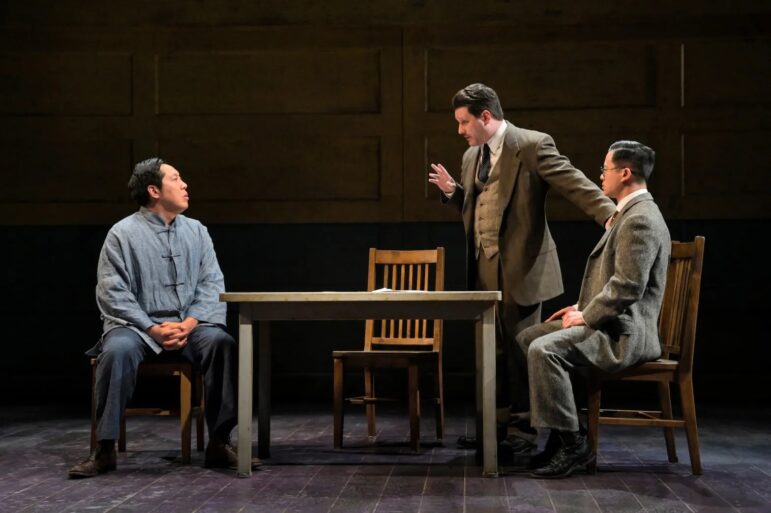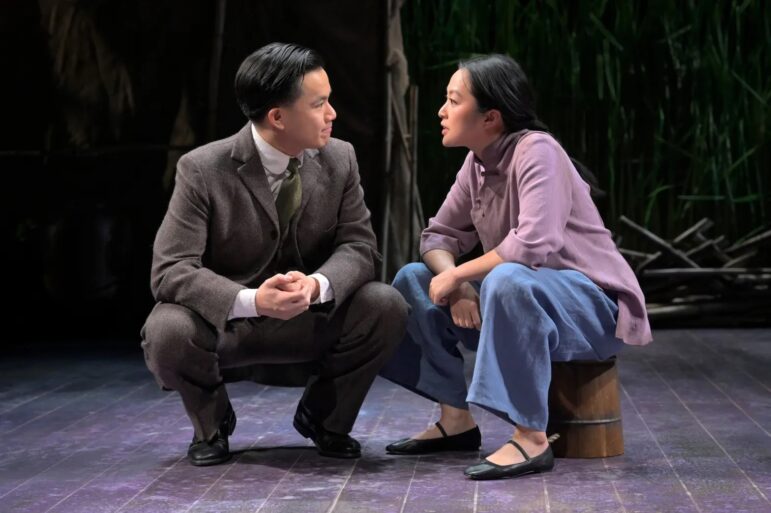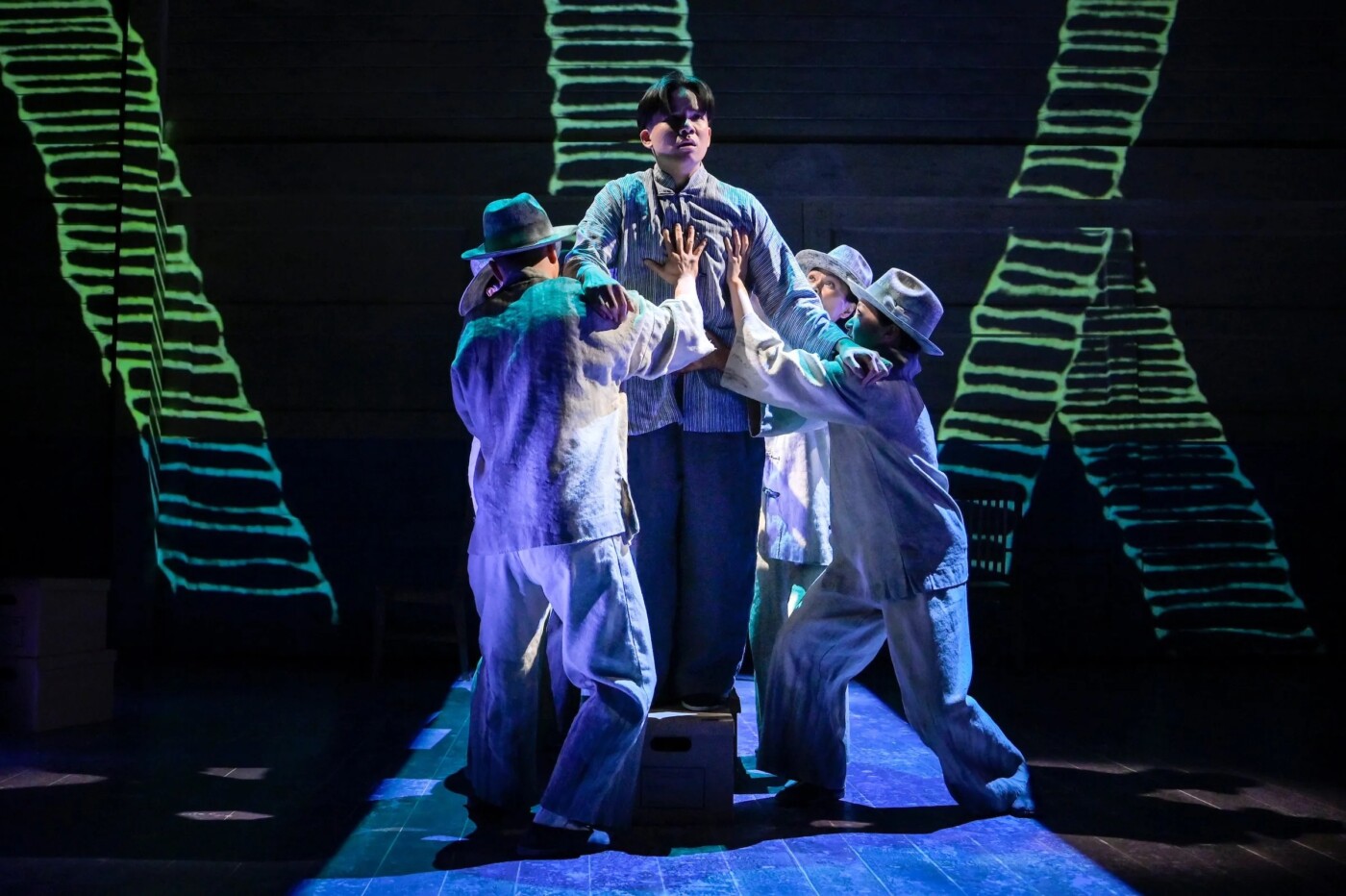In the rapid-fire first act of Lloyd Suh’s affecting drama “The Far Country” onstage at Berkeley Repertory Theatre, Gee (Feodor Chin), a clownishly jolly Chinese laundry owner in San Francisco, is being interrogated by an immigration official.
Because Gee’s English is halting, an interpreter is present, rapidly translating back and forth whenever Gee’s abbreviated English turns accent-less and fluid (indicating that he’s lapsed into Chinese) or when the interrogator’s queries become complex. It’s a clever device that requires two characters to say the exact same thing almost simultaneously, giving the scene a texture that feels both dizzying and harmonious.

Such is the complex puzzle of a life that Gee has embarked upon.
Suh (who wrote the luminous “The Chinese Lady,” staged locally at the Magic Theatre) is exploring, here, a trajectory of Chinese immigration to San Francisco in the early 1900s, during the years of the Chinese Exclusion Act (limiting Chinese immigration), when scores of “paper sons” (Chinese men sold false identities by others already living in the U.S.) arrived here, ersatz documents in hand, to be incarcerated for inhumane periods of time at Angel Island and eventually either accepted or sent back.
Gee, who, as it turns out in the next scene, is no clown at all, is one such sponsor; he’s a sharp entrepreneur all right, fleshed out by Suh and Chin. In a series of scenes beginning shortly after the 1906 earthquake, Suh follows the fate of both Gee and his paper son, Moon (Tommy Bo), moving the action back and forth from Angel Island, where Moon will be held for a mind-boggling 17 months, to the farm in China from which Moon emigrated, leaving his stalwart mother (played with great restraint by Tess Lina) behind. The bereft mom gives Moon his marching orders for the future: “You will respect a woman like me.”
The story of heartbreaking hardship that Suh is tracing — of Chinese poverty and immigration to the dreamed-of Gold Mountain — has been written about in fact and fiction and dramatized on stage and screen often. But it’s worth revisiting in the way that every immigrant story is worth visiting and revisiting in today’s fraught political climate. And Suh embellishes the story in ways that are at times poignant, painful, gently comic, unnerving and always touching.
Suh also gives strong voice, thankfully, to women: Moon’s mother, and also the fierce and lovely Yuen (an exuberant Sharon Shao). In fact, he gives the final scene, in large part, to a long monologue by Yuen, and it’s a powerful scene indeed.

The play would have been just the right size and shape if Suh had figured out a way to include the actual history of the reprehensible Exclusion Act, the details of Chinese immigration, Angel Island, dreams of Gold Mountain and the plight of paper sons without interrupting the story of Gee and Moon.
As it is, the abstract second half of the first act, with a small ensemble suggesting the hordes of captive immigrants on Angel Island, is bogged down with those facts and figures.
By intermission you might wonder if there’s a solid story here.
The poetry (actual writing made by prisoners on the walls of Angel Island barracks and recited here by ensemble members), the beautiful backdrops (photos, timeline, Chinese calligraphy by set designer Wilson Chin and projection expert Hsuan-Kuang Hsieh) and movement design by Erika Chong Shuch indeed create a lyrical atmosphere but sacrifice the flow.
Still, this is a powerful story, beautifully directed by Jennifer Chang and performed with great sensitivity by Berkeley Rep’s top-notch cast.
Berkeley Repertory Theatre’s “The Far Country” continues through April 14 at Peet’s Theatre, 2025 Addison St., Berkeley. Tickets are $25-$134 at (510) 647-2949 or berkeleyrep.org.
